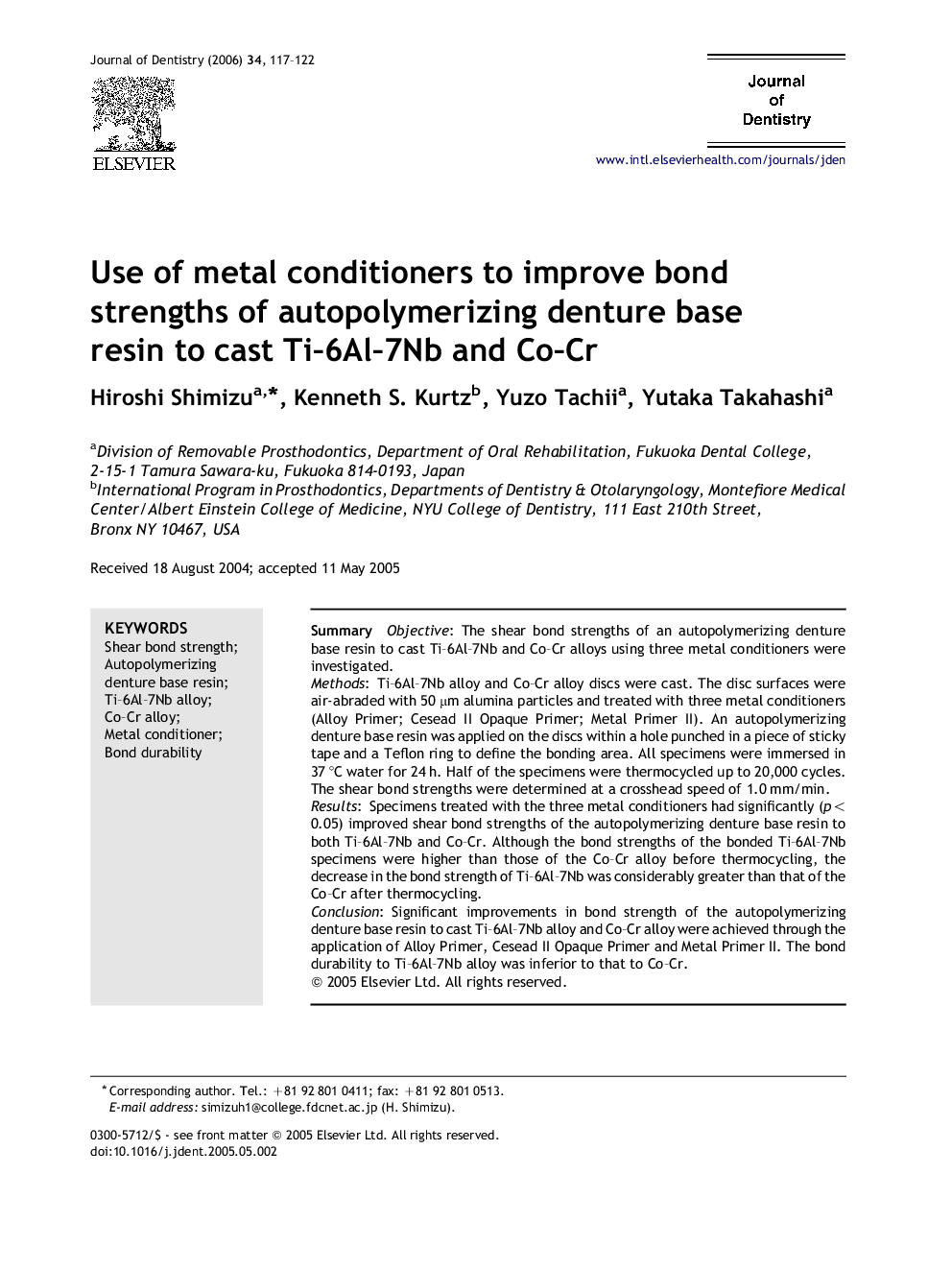| Article ID | Journal | Published Year | Pages | File Type |
|---|---|---|---|---|
| 3146488 | Journal of Dentistry | 2006 | 6 Pages |
SummaryObjectiveThe shear bond strengths of an autopolymerizing denture base resin to cast Ti–6Al–7Nb and Co–Cr alloys using three metal conditioners were investigated.MethodsTi–6Al–7Nb alloy and Co–Cr alloy discs were cast. The disc surfaces were air-abraded with 50 μm alumina particles and treated with three metal conditioners (Alloy Primer; Cesead II Opaque Primer; Metal Primer II). An autopolymerizing denture base resin was applied on the discs within a hole punched in a piece of sticky tape and a Teflon ring to define the bonding area. All specimens were immersed in 37 °C water for 24 h. Half of the specimens were thermocycled up to 20,000 cycles. The shear bond strengths were determined at a crosshead speed of 1.0 mm/min.ResultsSpecimens treated with the three metal conditioners had significantly (p<0.05) improved shear bond strengths of the autopolymerizing denture base resin to both Ti–6Al–7Nb and Co–Cr. Although the bond strengths of the bonded Ti–6Al–7Nb specimens were higher than those of the Co–Cr alloy before thermocycling, the decrease in the bond strength of Ti–6Al–7Nb was considerably greater than that of the Co–Cr after thermocycling.ConclusionSignificant improvements in bond strength of the autopolymerizing denture base resin to cast Ti–6Al–7Nb alloy and Co–Cr alloy were achieved through the application of Alloy Primer, Cesead II Opaque Primer and Metal Primer II. The bond durability to Ti–6Al–7Nb alloy was inferior to that to Co–Cr.
